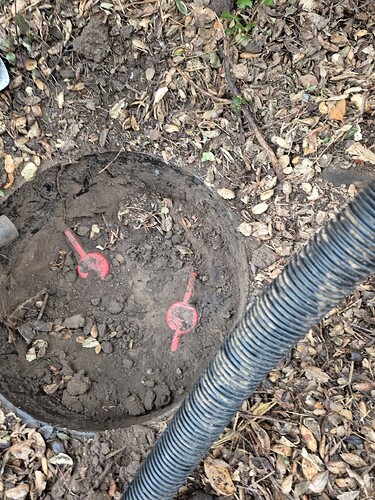Hi all, I have a bit of a story to tell…
I purchased a park a little over a month ago. The park has 32 homes of which half are park owned. Utilities are city water (not submetered) and private septic (tanks/fields). Generally, it’s a 2:1 ratio of trailers to fields, save for a few on the ends of the parks. During my due diligence process, I had a phase 1 study completed, a contractor to check the water lines, and also had the county come out to do an evaluation of the septic fields. However, I did not have anyone go into each of the park-owned homes to inspect them as the seller did not want the tenants to know of the pending sale…and since this is my first purchase, wasn’t sure if that was even appropriate to require as part of the transaction (lesson learned maybe?) None of the assessments came back negative in any way, all said the utilities and their systems appear to be in good working order, although it’s a 40 plus year old park, so no guarantee with anything. I also assessed the previous work done on the septics (invoices) but nothing appeared out of the ordinary…just the usual pump outs which I attributed to maintenance.
A few days after my purchase, I received a call from a tenant regarding septic backup in one of our park owned homes. We had a contractor go out there to check and he pumped out the septic tank but said the drain field is on its last legs and would need to be replaced. Just to be sure, we had another contractor come out and he came to the same conclusion.
Things appeared to be fine but they had an unusual amount of rain, which obviously started to fill the drain field again, causing further issues and also delayed the county from being able to go out there to permit the work. A week or so after, the county was able to permit the septic field to a more distant location because there wasn’t any space around the trailer for a drain field.
Because of the rain, I had the septic tank pumped out one more time as it was clearly not being able to accommodate the rain and septic use. Earlier this week, my tenants in the POH that were dealing with the issues shared pictures of the tub being flooded with septic water. As a courtesy, I placed them in a hotel for the past few days until the contractor could complete the work.
The septic contractor came out and installed the drain field, but on Friday noticed there was a large puddle of water underneath the POH, to which it appeared to still be leaking. The tenants were still in the hotel so he assumed it was fresh water.
A plumber came out there and turned the water back on to see where the leak was coming from but noticed nothing was leaking. So he went under the home and opened up the insulation to find significant amounts of sewage within the insulation. He then went into the home and it was filled with an inch or two of septic water. From what he told me, it appeared that the stop valve for the toilet was not working, which as a perfect storm, occurred simultaneously with the septic drain field not draining. As a result, the water from the toilet was continuously overflowing onto the floor.
The plumber recommended a remediation company, and he came out and gave his analysis, which was that this was in extremely bad shape, the water was an inch deep everywhere, there were holes already developing from the water, and because it isn’t fresh water, it is going to require an entire replacement of flooring, subflooring, probably walls, insulation, etc. as the damage is a “category 3.”
He said it would be upwards, minimum of $10k to just get it to the point of being able to reinstall the various fixtures, flooring, and ducts. That also doesn’t include possibly paying for any damages to the tenants belongings and getting the furnishings installed.
Temporarily, possibly permanently, I placed the tenants in a trailer that was just vacated.
Now my question is the following:
- I see two options now and wanted to get the forums thoughts:
- “Gut” the trailer, i.e. remove the flooring (and subflooring), walls, and air ducts (as recommended by the remediation specialist), considering also the cost of installing new floors/wall/air ducts and the various furnishings (so basically starting with a carcass)
- Demo the trailer altogether and bring in a new (used) trailer as a replacement, considering also the cost of demo, the cost of transport, and any additional remodeling that needs to be done?
Which option would be more advisable and obviously budget-friendly?
- My other question is regarding the due diligence process. Obviously, hindsight is 20/20 but this was not an expense I had assumed when I purchased the property, and so knowing that much of the issue is due to a faulty stop valve at the toilet that allowed the flushing to occur continuously, for future investments, how much effort should a buyer put into inspecting the interior of occupied park-owned homes?
Anyway, sorry for being so long-winded but I think context and transparency matters, even if mistakes were made on my end.
Appreciate any advice!!
